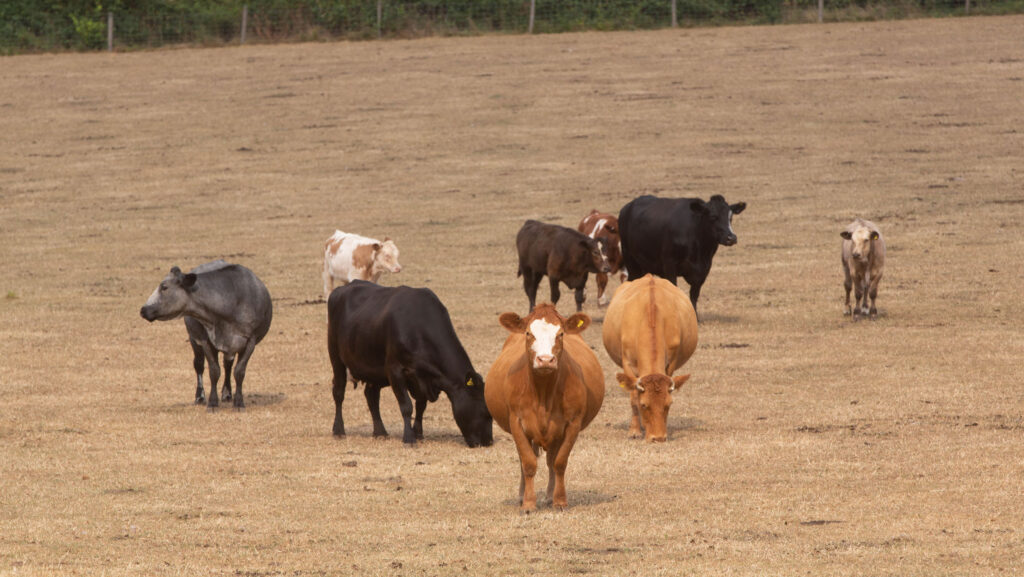Drought confirmed in Wales as pressure mounts on farmers
 © Tim Scrivener
© Tim Scrivener Farmers across Wales and neighbouring areas are under growing pressure as drought is officially declared in south east Wales, capping what industry leaders say is one of the toughest years in memory for agriculture.
Natural Resources Wales (NRW) confirmed the move after months of low rainfall, high temperatures and growing environmental stress.
The decision followed a meeting of the Welsh government’s Drought Liaison Group.
The rest of Wales remains in prolonged dry weather status, but NRW continues to monitor river flows, groundwater levels, and the impacts on agriculture and the environment.
See also: Worsening drought situation triggers fodder fears
Wales recorded its driest February to July period since the 1976 drought.
Although June brought some relief, July saw renewed hot, dry weather, with south east Wales receiving just 53% of its average monthly rainfall.
With river levels dropping and water supplies shrinking, farmers are warning of lasting consequences for both current and future food production.
In Herefordshire, near the Welsh border, livestock farmer Ed Samuel said his family farm has already been using up its winter silage reserves.
“We’ve been feeding all our cattle for two months now,” he said. “We’ve opened the silage clamp – something we wouldn’t normally do until the end of October. And we only have two-thirds of our usual silage.”
He added that poor grass growth and high competition for straw are driving up costs and putting livestock farms under severe financial strain.
“I think we’ll see the impact next year,” he said. “Conception rates in cows will be poor, and the condition of sheep is already suffering. I’ve not seen anything like this before. It’s perhaps a once-in-a-lifetime event.”
Herefordshire arable farmer and NFU county chairman Martin Williams reported a 50% drop in cereal yields and an 80% loss in grass grown for feed. He expects unirrigated potato yields to fall by half.
“Farming is in the midst of an agricultural revolution, whether it be through climate, regulation or government action,” said Mr Williams.
“The regionality of drought makes it worse. We are just a small area compromised in a bigger picture.”
Brassica crop concerns
Jack Ward, chief executive of the British Growers Association, said dry weather is already affecting brassica crops like cabbages and cauliflowers, especially in Lincolnshire.
“The lack of rainfall is not only compromising our ability to supply certain crops, but it could also compromise our ability to supply through the winter as well,” he warned.
He called for urgent investment in water infrastructure, saying: “The fresh produce industry is running on fumes in terms of profitability. In the short term, investment in water storage is vital to improve resilience.”
River levels ‘low’
NRW has also flagged environmental risks, with rivers such as the Usk and Wye seeing persistently high temperatures and low flows, threatening fish populations.
Rhian Thomas, NRW’s Sustainable Water and Nature Manager, said: “After such an exceptionally dry start to the year, it is going to take considerable time for rivers, groundwaters and soils to recover – even if we start to see some rain.”
